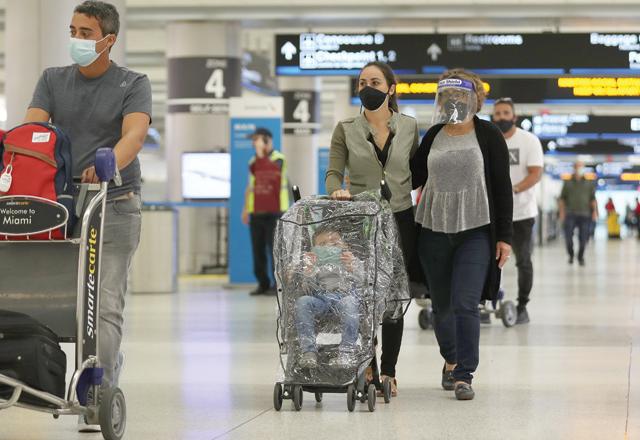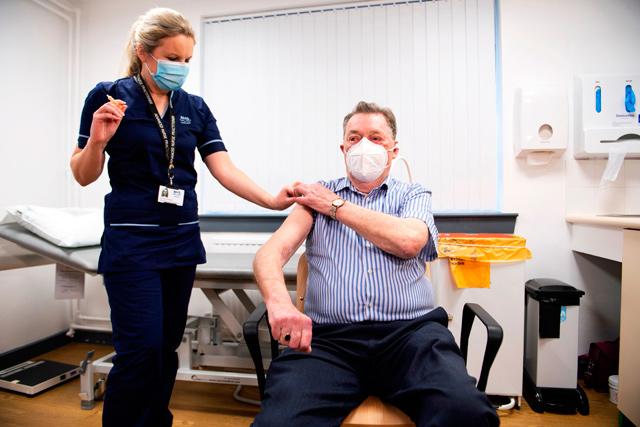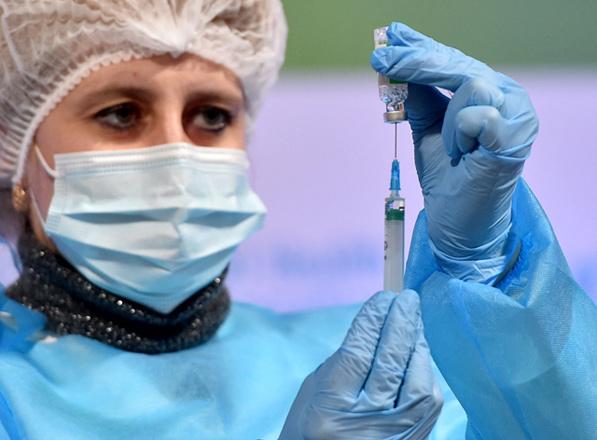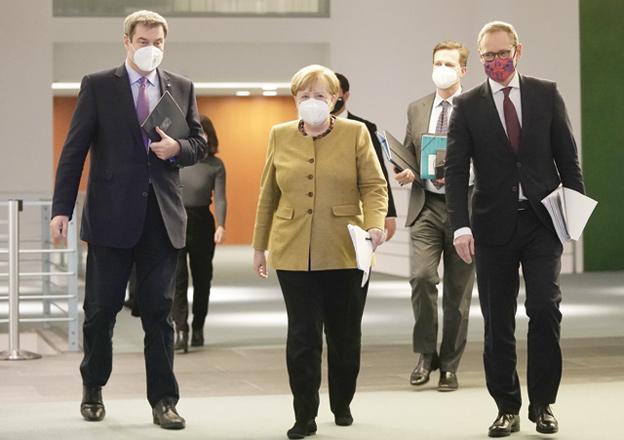You are here
EU aims to boost vaccination rollout as variants spread
By AFP - Feb 02,2021 - Last updated at Feb 02,2021

Travellers walk through Miami International Airport on Monday in Miami, Florida (AFP photo)
BRUSSELS — The European Union put on a brave face on Monday, defending its troubled vaccination programme and insisting that renewed pledges of vaccine deliveries would make up for a production shortfall.
Pharmaceutical giants have been scrambling to ramp up production and deliveries ahead of talks in Berlin with German Chancellor Angela Merkel later Monday, as anger grows over the EU's sluggish inoculation campaign.
The virus is known to have infected almost 103 million people so far — with more than 2.2 million deaths — and countries are desperate to move ahead with vaccinations and lift economy-crippling restrictions.
New, more contagious virus variants have added to the pressure, with Lithuania on Monday becoming the latest country to detect a case of a strain that first emerged in Britain.
Britain, meanwhile, said it would increase testing in England for a variant first detected in South Africa after nearly a dozen cases were confirmed.
Delays have dogged both the procurement and rollout of vaccines in the EU, and the relatively quick speed of the immunisations in countries such as Britain has sparked further frustration.
But Germany's BioNTech and its US partner Pfizer said Monday that improvements in their production capabilities would allow them to speed up supplies, pledging to send 75 million doses in the spring.
European Commission chief Ursula von der Leyen said Sunday that AstraZeneca will also boost shipments of its vaccine to the EU — although it would still ship less than foreseen in its initial agreement with Brussels.
The British-Swedish group had previously said it could deliver only a quarter of the doses originally promised to Brussels for the first quarter of the year, sparking outrage and accusations it was giving preferential treatment to Britain.
Chemicals giant Bayer meanwhile announced that from 2022 it would produce a coronavirus vaccine that fellow German pharmaceuticals company CureVac is developing.
The pledges came hours ahead of the talks in Berlin between German political leaders and vaccine makers called by Merkel, who has come under fire for allowing the European Commission take the lead in securing vaccines for the 27-nation bloc.
Variants spread
In the United States, a group of Republican senators were to meet with new President Joe Biden to present an alternative to his $1.3 trillion virus relief plan, arguing that a scaled-down approach could garner bipartisan support.
Senator Susan Collins, a moderate Republican from Maine, said that she had joined the group to present their own $600 billion package to help steer the world’s worst-hit country out of historic health and economic crises.
Tight restrictions remain in place in a number of countries to curb the circulation of the coronavirus and its recent variants.
In France, border police turned away some passengers bound for non-EU destinations as new rules took effect banning flights to and from countries outside the bloc.
Only urgent reasons for travel are accepted and border police require written proof of a negative test before allowing passengers to board, as Toure, a Malian national, found out when he tried to leave France for Bamako.
“I said that my mother, whom I hadn’t seen in a while, was ill but they told me I needed proof,” Toure, who withheld his last name, told AFP at a Paris airport.
French Finance Minister Bruno Le Maire also warned restaurant owners that they risked losing COVID-19 financial aid if they open in defiance of the pandemic shutdown, following protests and reports that some eateries are secretly serving customers.
Italy on Monday relaxed coronavirus restrictions in most of its regions, with tourist landmarks such as the Colosseum reopening.
In Poland, museums, art galleries, libraries and shopping malls re-opened as the country eased some restrictions, though most schools remained shut along with bars, restaurants and hotels.
‘Make a difference’
Britain’s National Health Service said all elderly people living in English care homes who are eligible have now been offered their first injection.
After the government called for 30,000 individuals to help administer the Pfizer-BioNTech and AstraZeneca doses, volunteers lined up in a London skyscraper, waiting to be taught how to administer the vaccine.
“When I had the opportunity to do something that made a difference, I definitely wanted to jump at it,” documentary director Mike Day told AFP at Canary Wharf in east London.
South Africa took delivery of its first shipment of coronavirus vaccines on Monday, paving the way to mass inoculation in the continent’s worst-hit country.
Israel meanwhile extended its nationwide lockdown as the country presses ahead with an aggressive vaccination campaign.
India unveiled a massive spending plan focused on healthcare and infrastructure, as the government sought to boost a coronavirus-ravaged economy on course for its biggest annual contraction on record.
Related Articles
LONDON — Britain on Monday began rolling out the Oxford-AstraZeneca coronavirus vaccine, a possible game-changer in fighting the disease wor
GENEVA — The EU's medicines regulator said onTuesday there was so far "no indication" the AstraZeneca vaccine causes blood clots, urging cou
LONDON — Britain closed its schools on Tuesday ahead of a new national lockdown, with Germany set to extend its own restrictions as Europe b



















